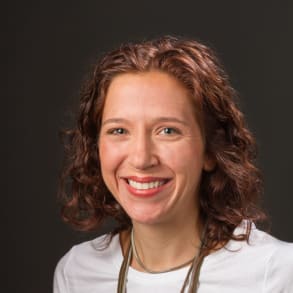With around 113,000 people waiting for an organ transplant, every donated organ is a potentially lifesaving gift.
“The disparity between the number of people waiting for an organ and the number of organs available is significant,” says transplant surgeon Dani Haakinson, MD.
Despite the great need, some donated organs are considered unsuitable for transplantation. “Compared to 20 years ago, deceased organs now come from donors who are older, who have more comorbidities or other diseases,” says David Mulligan, MD, Yale Medicine’s chief of transplant surgery and immunology. Using these “marginal” organs could lead to increased health risks post-transplant.
But what if marginal organs could be made healthy enough for transplantation? That’s the goal behind the research collaboration between Dr. Haakinson and Gregory Tietjen, PhD, associate professor of transplantation and immunology at Yale. Together, they are studying human organs that are declined for transplantation and developing new therapeutic and diagnostic innovations to repair them.
This video highlights their groundbreaking research aimed at expanding the pool of available organs to save the lives of patients on waiting lists.
Related Presenters
Ramesh Batra, MBBS, MA, FRCS, FACS
Transplant Surgery
Ramesh Batra, MD, is an adult and pediatric abdominal transplant surgeon who performs kidney, liver and pancreas transplants. He also performs complex hepatobiliary procedures for people with liver tumors and biliary tract disorders, as ...
Nephrology
Richard Formica, MD, is a nephrologist and the director of transplant medicine at Yale Medicine. He received his medical education at Boston University School of Medicine before arriving at Yale in 1997. As the director for transplant ...
Transplant Hepatology
Annmarie Liapakis, MD, became interested in treating liver disease when she saw how seriously it affects patients. She felt like it was an area she could make a real difference. As a physician, her goal is to help patients not only with ...



